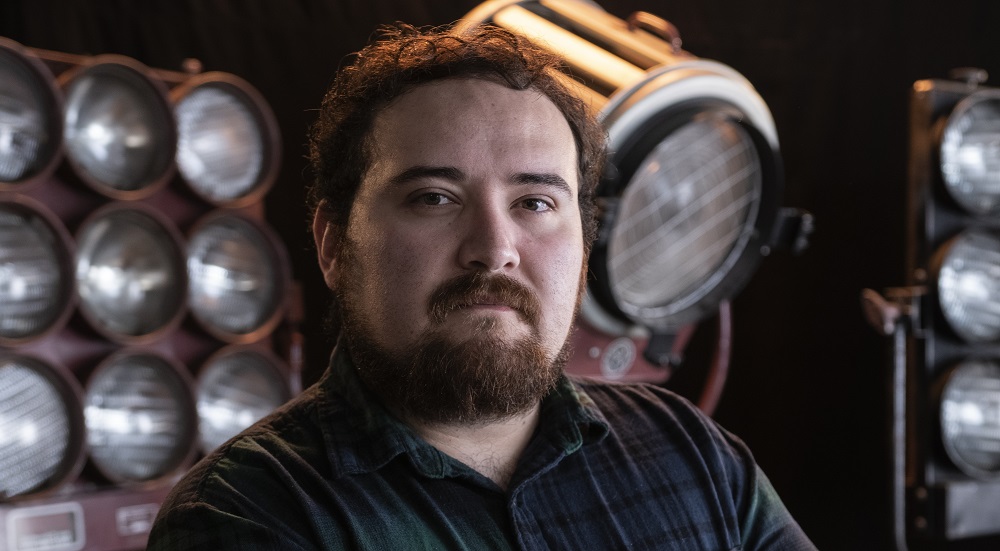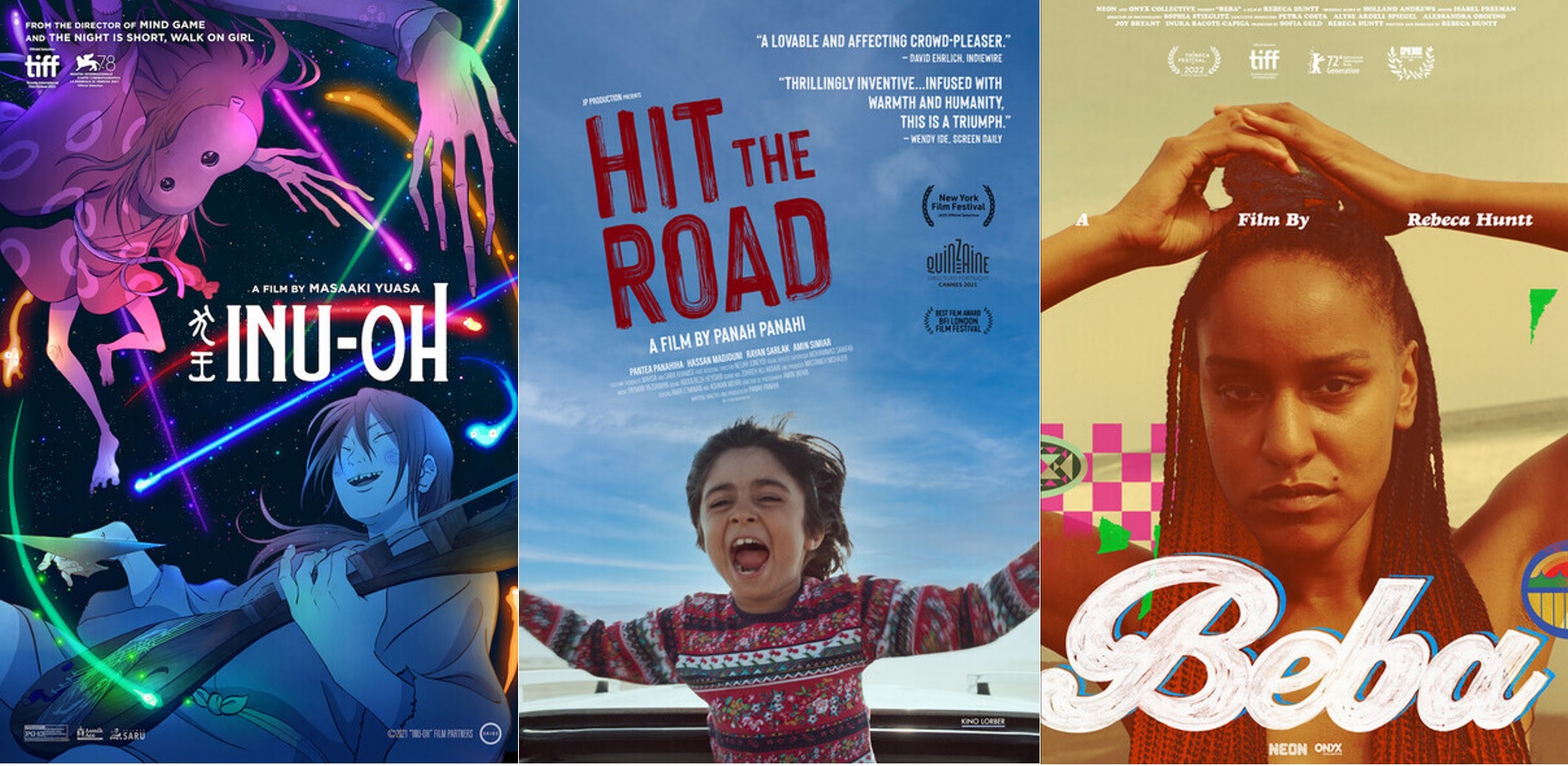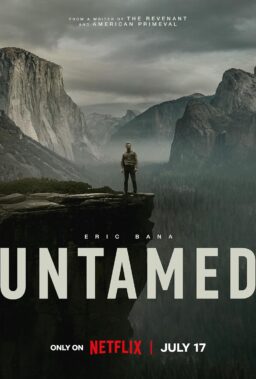We asked ten contributors to pick three films from 2022 that they think everyone should see before making their top ten lists of the year. These are the choices of Carlos Aguilar.
Lost in the deluge of late-season awards contenders, followed by the catch-up frenzy to see every star-studded title, are the standout films whose earlier release dates and not-as-mainstream profiles can render them forgotten when year-end lists drop. A bounty of international features, animated offerings, and nonfiction visions have graced art house screens and streaming services this year, months before the fall festivals consumed the industry’s focus.
As we approach the final weeks of 2022, here are three marvels, one from each of the aforementioned categories, that likely missed your radar when they first saw the light in earlier months.

“Beba”
As semi-autobiographical fiction works from revered auteurs crowd our screens this year, Rebeca Huntt’s singularly courageous nonfiction debut in which she aptly serves as “the lens, the subject, and the authority,” stands out as a painfully honest take on revisiting one’s own past in front of the camera. Born in NYC with roots in Venezuela and the Dominican Republic, the Afro-Latina artist spent eight years constructing this intimately fearless excavation of the intergenerational wounds that have yet to heal within her and those closest to her. A conversation with her mother early in this introspective quest proves that some topics remain too difficult to litigate without defensiveness. Along the way, her career ambitions come to the foreground as they collide with the white institutions that can validate or vanish someone’s talent.
Huntt avoids the conventional grammar of talking-head interviews and archival footage/images seen in so many documentary efforts. Instead, she crafts dreamlike scenarios to contain her poetic voiceover. Images that may not obviously be tied to the text evoke an emotional truth in this search for answers that may never come to light. At once searingly unapologetic and hypnotic, “Beba” is exquisite cinematic self-portraiture that’s unafraid of illuminating even the less flattering shades of its heroine, or of expressing her fear of her family’s reaction to such vulnerable depictions of their shared experiences. Admirably, Huntt makes no concessions of presumed virtue, not even for herself. The approach yields brilliant results.

“Hit the Road”
Iranian filmmaker Panah Panahi—the son of acclaimed and currently imprisoned director Jafar Panahi—finds levity in the tragedy of separation with “Hit the Road,” inviting us on a road trip through a landscape of nuanced emotions amid the turbulent social and political climate of his homeland. An everyday family, propelled by fear and hope, heads towards the border so that their oldest son (Amin Simiar) can try to leave the embattled country with the help of smugglers—a risky ordeal every step of the way.
Both the lovingly grumpy father (Mohammad Hassan Madjooni) and unabashedly adoring mother (Pantea Panahiha) try to conceal their worry and keep morale high. They don’t want to burden their final moments together with the heaviness of sorrow. Yet, the closer they get to the destination of the young man’s departure, the more difficult it becomes to smile. Throughout the journey, the clan’s youngest son (Rayan Sarlak) is a source of humorous irreverence and infectious energy. In the most striking child performance in recent memory, Sarlak doesn’t portray unsophisticated innocence, but a real personality with acerbic notes that elevate the character’s charm.
Panahi’s bittersweet tone is magical, and it unites seemingly disparate parts such as an amusing musical number, and even a whimsical sequence beyond the confines of our planet. “Hit the Road” celebrates a love that, even when unspoken or across the limitations of geography, can never truly be disconnected.

“Inu-Oh”
In a banner year for animated features, with masters and masters-in-the-making debuting major achievements, prolific and eclectic Japanese director Masaaki Yuasa stuns with his most narratively ambitious and visually propulsive work to date. This dazzling rock opera set in the 14th century plays with anachronistic elements and features high-octane animation in a marvelous whirlwind of stadium-ready songs.
Cursed since birth, Inu-oh hides behind a mask. Destiny, however, will cross his path with that of Tomona, an accomplished blind musician and biwa priest: an itinerant performer in ancient Japan who would disseminate powerful narratives. Together they travel across the land to put on shows for the masses where Inu-oh’s dancing and Tomona’s lyrics transcend the bounds of live music to become breathtaking, nearly otherworldly events. Soon, their successful act garners plenty of fans, and some terrifying enemies.
Yuasa’s previous fascination with telling musically driven stories (most recently in “Lu Over the Wall”) reaches its most ravishing expression here with hand-drawn characters and a subdued color palette. Yuasa’s characters move across the frame with extraordinary kinetic force—especially on display in Inu-oh’s elongated body. This animated work for mature audiences honors the relevance of storytelling and the voices that history has forgotten, either because their legacy has been lost to time or because those in power silenced them.












